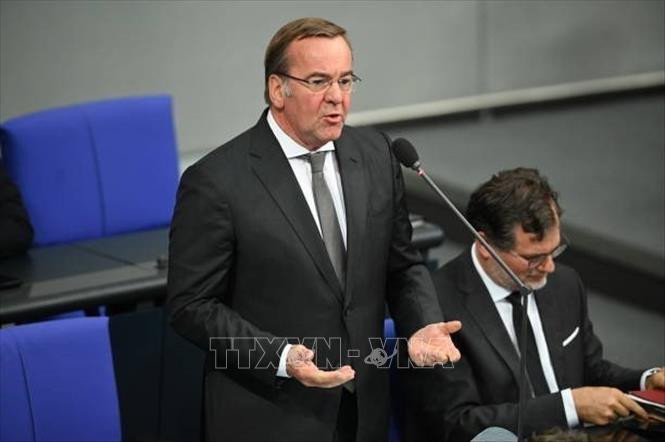German Defense Minister Boris Pistorius said receiving long-range missiles from the US would allow Berlin the opportunity to develop similar weapons.

According to RT (Russia), on July 11, speaking to Deutschlandfunk television, Mr. Pistorius expressed his relief that the US long-range missiles would be deployed in Germany. He argued that this would help cover up a “serious gap” in the country’s defense. The head of the German Defense Ministry also expressed confidence that future US administrations would not reverse this decision.
However, since the US long-range missiles will only be rotated to Germany, it is quite clear that Washington expects Berlin to invest in the development and procurement of these long-range weapons.
According to Mr. Pistorius, the US deployment of cruise missiles in Germany will allow Berlin the time needed to carry out those tasks. He believes that this goal is key to ensuring Germany's national security.
Earlier, at the end of this week's NATO summit, Berlin and Washington announced that the US would deploy cruise missiles in Germany from 2026.
The deployment of such weapons was previously banned under the Cold War-era Intermediate-Range Nuclear Forces (INF) treaty, but Washington withdrew from the landmark agreement in 2019.
The joint German-American statement released by the White House revealed that among the weapons to be deployed to the European country are SM-6 air defense missiles, which have a range of up to 460 km, as well as SM-6 Tomahawk cruise missiles, which are said to be able to strike targets more than 2,500 km away.
In addition, Washington has announced plans to deploy hypersonic weapons under development in Europe, which have “significantly longer ranges than current land-based missiles” on the continent.
Explaining its decision to withdraw from the INF Treaty in 2019, the Trump administration said Russia had violated the agreement with its cruise missiles. Moscow denied the allegations. Russian President Vladimir Putin warned that scrapping the agreement would have “the most serious consequences.”
For its part, Russia continues to abide by the INF treaty several years after the US withdrew from it. Meanwhile, the Kremlin announced earlier this month that the country's defense industry would continue to develop missiles capable of carrying short- and medium-range nuclear warheads.
At the time, Mr Putin explained: “We now know that the US not only produces these missile systems, but also sends them to Europe, to Denmark, to use them in exercises.”
In a Telegram post on July 11, Russian Ambassador to Washington Anatoly Antonov accused the US of deploying long-range missiles in Germany as a “direct threat to international security and strategic stability.” The diplomat added that the move could lead to “an uncontrollable escalation amid dangerously rising Russia-NATO tensions.”